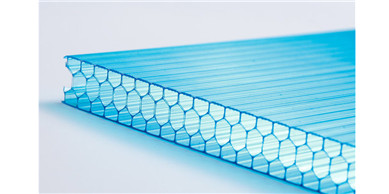Views: 354 Author: Site Editor Publish Time: 2021-09-20 Origin: Site

Polycarbonate has been widely applied in medical field, and current technological innovation further reinforces its place. The inherent physical properties of polycarbonate, such as strength, rigidity, and transparency, and flexibility produce many advantages. Bio-compatible grades of polycarbonate make it an essential component of medical devices. Moreover, polycarbonate can be cleaned and disinfected through a number of methods such as ethylene oxide (EtO), irradiation, and steam autoclaving.
There are several processes through which polycarbonate is produced, including injection molding, blow-molding, or extrusion. It is said PC sheet manufactured through extrusion is of the best quality. Through thermoforming, desired shapes can be made.
Polycarbonate: Medical Applications
Polycarbonate are often used in medical devices and processes, such as renal dialysis, cardiac surgery, IV connectors, and surgical instruments. Involving removing and screening blood so as to to eliminate toxins, Renal dialysis depends on passing blood through a semi-permeable membrane cartridge. Polycarbonate often forms the clear and sturdy that houses the membrane, protecting the process and facilitating doctors to monitor the procedure. Because polycarbonate is chipping, and impact resistance, and can withstand several types of sterilization, it can easily be re-used without affecting its performance.
In cardiac procedures, polycarbonate is used in blood oxygenators, blood reservoirs, and blood filters. Since polycarbonate is clear, it allows doctors and nurses to monitor blood much like they do in renal dialysis. Blood filtering often involves centrifuge filter bowls which spin at high speed, generating a lot of force—and polycarbonate ensures the bowls are strong enough to resist breaking, thereby protecting the process.
Polycarbonate is also a common material for intravenous connectors, because it accepts different types of sterilization. Common connectors, such as stop-cocks, y-injection sites, check-valves, and filters housings, sometimes require different sterilization methods—pre-packaged kits generally use radiation, however, if a pre-packaged pharmaceutical is included, then steam-autoclaving is often the preferred method in order to protect the drug. Due to the material’s transparent, polycarbonate connectors allow patients and doctors alike to track the administration of fluids and its structural stability encourages a snug fit with other devices.
In terms of surgical instruments, polycarbonate is replacing metal in some applications. Trocars, tube-like instruments used to insert other instruments into the body, are often made of polycarbonate because it prevents the trocar from bending and allows doctors to track the progress of the instrument being installed.
Specialty Grades of Polycarbonate
Despite the many successful medical uses of polycarbonate, there are still numerous specialty grades including radiation grades, high-temperature grades, and lipid-resistant grades. Additionally, there are several kinds of polycarbonate blends and films.
Radiation Grades
Radiation grade polycarbonate is specially manufactured to withstand newer forms of high-energy irradiation sterilization. Because polycarbonate tends to turn yellow after irradiation, radiation grades contain special additives to help maintain the plastic’s transparency.
High-Temperature Grades
Because polycarbonate cannot withstand temperatures above 250 degrees Fahrenheit without distortion or degradation, high-temperature grades have been developed. Steam autoclave sterilization sometimes operates at higher temperatures--around 270 degrees F—to shorten the cycle time, and high-temperature grade polycarbonate is able to withstand the heat increase.
Lipid Resistant Grades
Often drugs are administered using lipid emulsions instead of water-based solutions because many drugs are not water-soluble. Lipids, however, run the risk of degrading the polycarbonate leading to cracks and possible leaks. As a result, lipid-resistant polycarbonates are sometimes preferable in intravenous applications.
For more information on polycarbonate, please visit our website: https://www.sn-newmaterial.com/